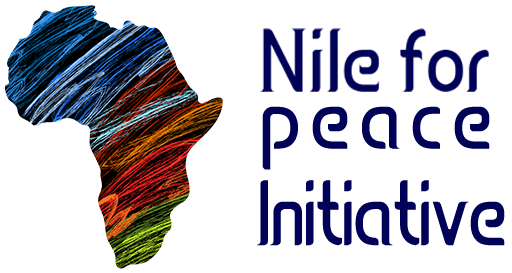Principles

Recognition and appreciation of the historical fact that the Nile riparian countries – Egypt, Ethiopia, Sudan, South Sudan, Burundi, Eritrea, Kenya, Democratic Republic of the Congo, Rwanda, Tanzania and Uganda have a shared civilization, trade, language, religion, culture;

The Nile can and should inspire African Unity for the ‘Africa we Want

Sharing the benefits and any harm that projects on Nile River may generate;

All Nile riparian countries should be treated as one body, where all parts are like parts of the human body, giving and receiving.

Citizens and their civil society formations should be at the center and sufficiently informed and updated on all developments initiatives within the Nile basin because it affects their lives;

There needs to be transparency in communication to the people;

Independent and institutional researches should be encouraged and facilitated to create new knowledge on the Nile Basin and the Grand Ethiopian Renaissance Dam Project. All parties should endeavor to use scientific research as a springboard for evidence based-consultations and decision-making

Understanding and protecting the natural and historical use of the Nile water and the larger ecosystem should underpin all projects undertaken in the Nile Basin;

No efforts should be spared in mainstreaming women and the youth in all efforts to resolve the current and future disputes. The involvement of women in negotiation should not only be encouraged but also promoted and facilitated, not only because they generally are against war but also because they can use their natural wisdom in securing successful negotiations and resolutions.

Ethiopia should consider delaying the 2nd filling of the Grand Ethiopian Renaissance Dam to avoid escalating the conflict. However, if Ethiopia were to suffer a loss due to any delay, the international community should come to its rescue, with Egypt and Sudan doing everything they possibly can to facilitate such a process in the spirit of mutual cooperation of assistance;

Cooperation in working on decreasing water pollution in the Nile Basin and a continuation of the work of the Nile Basin Initiative.

There be established mechanisms for transparency and accountability for all projects on the Nile River, including the Grand Ethiopian Renaissance Dam;

The connections created through the Nile River should be sustained in a positive tone and manner

Every project that is built around a river should bring benefit to all and avoid harm to any other party.

Farmers and fishermen whose livelihoods are dependent on the Nile River and its sources should not adversely suffer;

Respect, equitable and just benefit of the water: every project built around the Nile River should bring benefit to all and avoid significant and avoidable harm to other parties.

Educating and raising awareness of the people about limitation and conservation of water should be mainstreamed and integrated in all projects on and around the Nile Basin;

The opportunities and threats of the Grand Ethiopian Renaissance Dam need to be explained to citizens in all the Nile basin countries to engender public trust in their governments, feel empowered, and contribute positively towards ongoing dialogue and negotiations around the project;

Countries have the right to set up development projects for their people. However, they should put into consideration the interests of and the impact this may have on other countries;

Appreciating the need to fill the Grand Ethiopian Renaissance Dam gradually and on the basis of consensus among the three core countries taking into account its effects on climate change, floods and drought variabilities.

Parties should observe the principles of good faith in international relations and should consider consulting over every issue even when it concerns an individual country.

For any loss, Egypt should help in supporting the implementation of sustainable development projects in Ethiopia and increase trade cooperation

That there be established a Water Master Plan for the effective and collaborative sustainable development and utilization of all water resources in the Nile Basin countries. Each country, therefore, should endeavor to develop a plan individually and collectively based on the agreed master plan;

Those urgent processes be initiated aimed at working with citizens and securing universal participation to help improve the relationship between Egypt, Ethiopia and Sudan. This will go a long way in enhancing the ability of their leaders to negotiate and adopt agreements that reflect their interests, especially with regard to sustainable economic development and poverty alleviation.

That all steps be taken to prompt consensus: Egypt, Ethiopia, and Sudan should appreciate the importance of having a binding legal agreement that works on the sharing of the regional benefits of water resources in a fair and equitable manner, and in a way that guarantees the right of all to benefit from the water resources;
